(Psst: The FTC wants me to remind you that this website contains affiliate links. That means if you make a purchase from a link you click on, I might receive a small commission. This does not increase the price you’ll pay for that item nor does it decrease the awesomeness of the item. ~ Daisy)
We Frugalites live by many sayings, such as “A penny saved is a penny earned.” I take a great deal of pride in my ability to earn all of these pennies as they add up! However, there are times when even a Frugalite needs to spend money.
I want to share with you a hard-learned lesson where I thought I should stop spending, and just the opposite was true. During a difficult time in my life, I neglected my dental care. Because money was tight, I decided to save money by NOT going to the dentist. By sharing my story, I hope that I can help other Frugalites who might find themselves in similar circumstances in the future.
Why I began neglecting my preventative dental care
In 2015, my beloved partner Peter died after a year-long illness. Suddenly, I found myself alone and facing significant challenges, all without my best friend and confidante. Not surprisingly, I fell into a depression and was neglecting my health, especially my dental health.
During this same time, I faced some financial challenges, and my dental coverage at my previous job had ended. I reviewed my budget. When I got a reminder call to go in for my cleaning, I told them I wasn’t able to. This cycle of being short on cash and cutting out the dentist continued for about four years. All the while, I still wasn’t being very conscientious with my dental care.
One day, I got a flyer in my mailbox from a dental office opening in a new mall not far from where I lived. They offered a fantastic deal for new patients: only $175 for a complete exam and X-rays. Somehow, I knew it was time to get right with my dental care. I booked an appointment and got my exam.
And then I discovered just how bad it was
OH NO! The news that I had several cavities between my teeth that would take two further appointments to fill was devastating. I was looking at almost fifteen hundred dollars of dental work. Money was still tight. What had I done? I hadn’t saved any money and I had damaged my teeth. If I had only gone for a cleaning and check-up four years ago, I would have received feedback that my dental care was slipping. I could have done better.
Since then, I have done better. With the stern encouragement of my dentist and excellent hygienist, I have dramatically improved my dental care. Because I am taking better care of my teeth now, my dentist says I have a chance to keep them in my old age. I consider myself lucky to have learned this lesson when I did.
Preventative Oral Health Care: the dollars and cents
So, I’ve shared my own story. But is there any hard evidence that spending on the dentist will save you money? You betcha! To put spending those hard-earned pennies into perspective, I will also share some research on the financial benefits of preventative dental care.
Here’s what UIC College of Dentistry has to say about it:
“Preventative dental care practices –including early and routine treatment at the dentist, combined with good home care (brushing and flossing)—can save families money in the long run. These savings can be greatest for low-income families because they have less disposable income and more preventable oral disease. Studies have shown that for every dollar spent on preventive dental care – $8 to $50 can be saved in restorative and emergency treatments – and potentially more in additional types of medical treatment.”
The hard part is spending now when the savings may be years away. But it does add up to your benefit in the long run!
The connection between oral health and overall health
We can all list some of the outcomes of poor dental health: gum disease, dental pain, loss of some teeth, or even all of your teeth. All of these can add up to significantly impact our ability to speak, enjoy certain foods (think crisp or crunchy or things with small seeds), and even smile without hesitation. As well, you may find yourself missing work or in the emergency room with a bad tooth (both of these will cost you!).
However, were you aware that oral health can have a substantial impact on your overall health? More and more connections are being discovered between our mouth, our teeth, and the rest of our body. The Mayo Clinic calls your oral health “A window to your overall health.” It provides a long list of diseases that poor oral health (and bacteria traveling from an infected mouth) may contribute to, including infections of the lining of your heart, cardiovascular disease, birth complications, and even pneumonia!
That can certainly put that dental cleaning you’ve been putting off into a whole new perspective.
Ways to see the dentist when you are on a budget
If you’d like to get to the dentist, but do not have dental coverage, check out this article that lists some other options you can explore. Or maybe it’s time for you to audit your budget and look for savings to use towards dental care or make regular preventative dental care a big goal for you and your family.
In my case, I bit the bullet and bought into a modest dental plan before I had all the work done and the cavities filled. The savings of almost $1500 made a big difference to me, and I’ve been happy to pay $80 a month to have dental and other extended health care as my “safety net” since then.
What if I can’t buy into a dental plan?
If buying into any plan is not in the cards for you right now, here are some other possibilities
- Go to a dental school student clinic for lower-cost dental work and cleanings; these clinics may also accept Medicaid.
- Ask your dentist for an informal payment plan. I know one dentist in a small town who allows patients to pay what they can over time towards larger bills.
- If your credit is good, you may qualify for a no-interest payment plan through some creditors like PayBrite.
- There is a free dental day every year in our small city, where people can come on a first-come, first-served basis to receive either cleaning or a filling on that day for free.
- If you are a veteran, you could explore what benefits you might qualify for here.
Dental pennies saved, spent, and earned
Regardless of your budget or where you are at, I hope this article inspires you to brush twice a day, floss once a day, and get excited about the penny-saving potential of preventative dental care!
How have you gotten through tough times and still managed dental care for yourself and your family? Do you have other suggestions on accessing free or low-cost preventative dental care in your area? Please share your thoughts and stories in the comments!
About the Author
Colette is a seventh-generation farmer and homesteader. She grew up in the suburbs of a large Canadian city, but spent summers in her childhood visiting her family farm. She has worked professionally as a researcher and writer for decades, all the while travelling the world. She always knew she would return to the area near her family farm in Eastern Ontario, Canada and is now happily living not far from there on her Half-Acre Homestead. Soon, she will be launching a website full of tips for Frugalites and homesteaders alike. If you subscribe to the Frugalite email list, keep an eye on your inbox to be one of the first to see it!
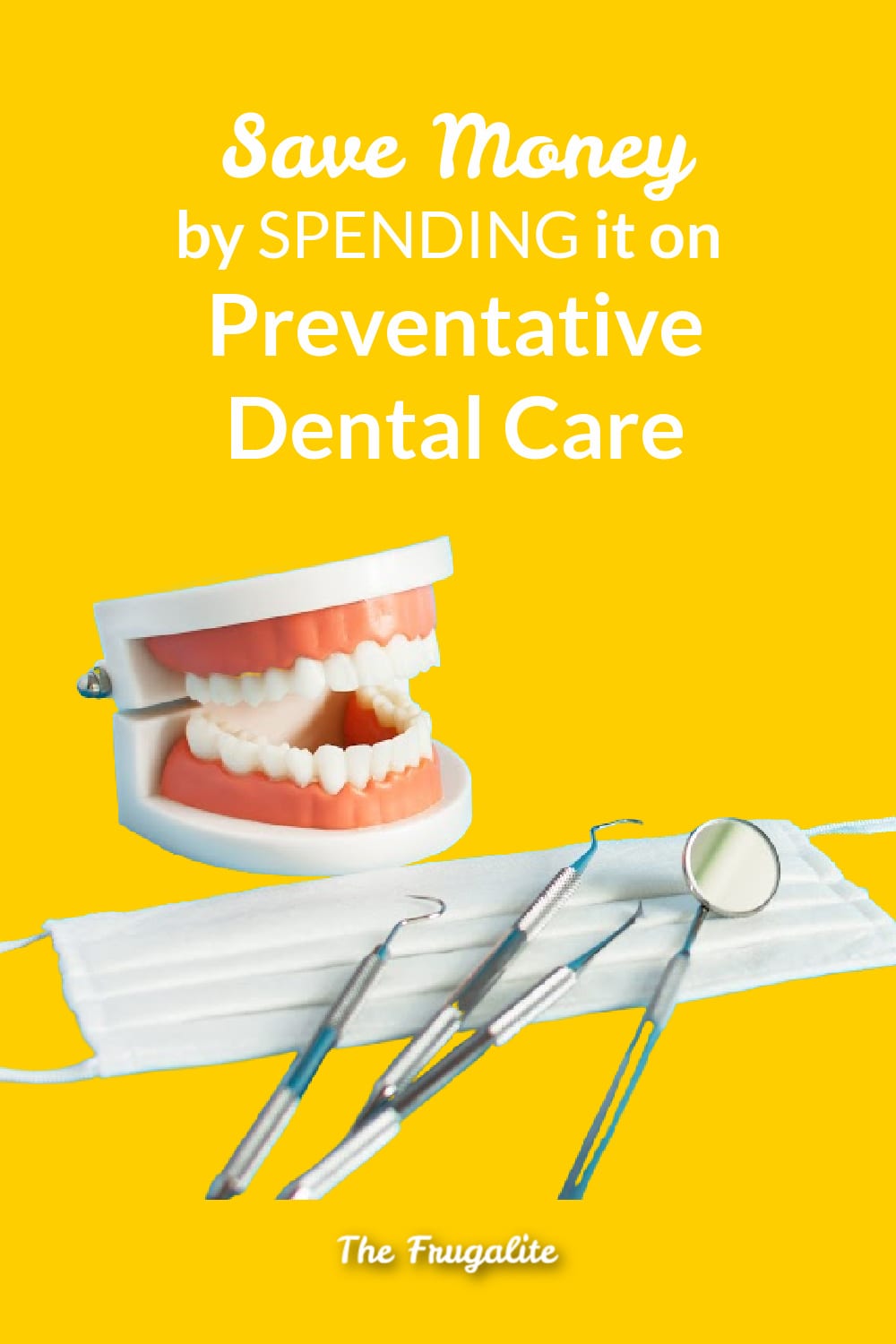

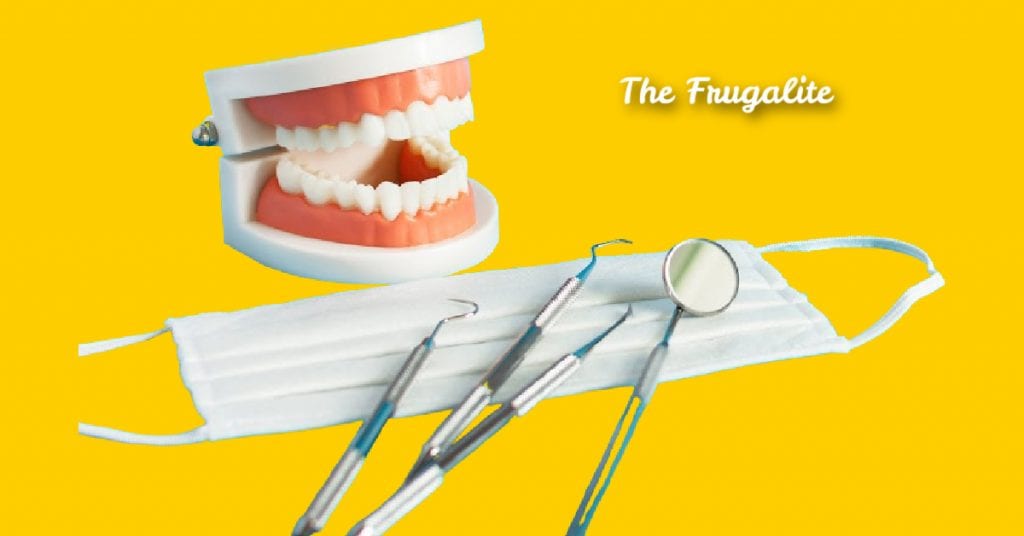
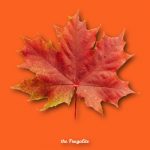

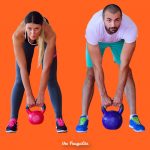
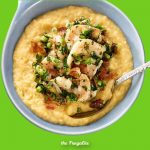
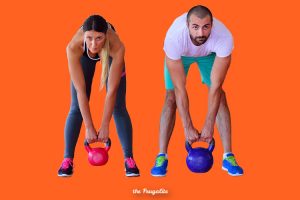

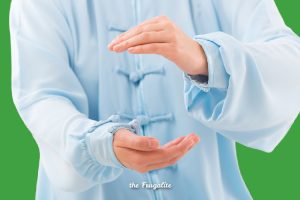
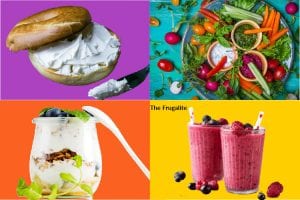

20 thoughts on “Save Money by SPENDING it on Preventative Dental Care”
Nailed it again!
I love how you mentioned a new patient offer. I was able to get my spouse in for exam and x rays for a really good price – $20 I think – because of a family practice doing a new patient offer. I also put her on my HSA so she can use the funds my employer matches. I get my stuff done on my insurance plan and get my spouse taken care of from the HSA. Helps save a fair amount too.
Thanks, Redbranch! Although you clearly got a MUCH better new patient offer than I did… jealous! That is a great tip about your spouse being able to use your HSA (and funds matched by your employer). A great way to save and ensure you’re both getting what you need to be healthy!
I will echo not neglecting dental health. I have/had an irrational fear of the dentist going way back. I did from time to time avail myself of dental services but not on a regular basis. I finally decided to set things right while I had ‘cadillac’ insurance only to lose that job. It was another 3 yrs before I had insurance again. I already knew dentures were my only option. Hindsight is 20/20. As bad as my dentition was, I got rushed into dentures I was only able to wear for a few weeks. And then the lockdown came. I have been going toothless since. Hoping to find a dentist I can trust and do implants. Moral of the story, don’t be like me. Take heed of what Chloe says here.
Grammyprepper, I so appreciate your sharing your story, as well. There are many rational reasons to have fear of the dentist, because they do have scary needles and drills and it’s sometimes not all that pleasant! However, I think we have both learned from our own experiences how important it is to push through the fear and financial hardships that dental care can cause. I, too, had “Cadillac insurance” for a time and then lost that job. I am sorry to hear how things worked out for you and that you were rushed into dentures that were not truly a long term solution. I hope that you find that trustworthy dentist and are able to move forward with implants that will work much better for you!
I would like to recommend reading Cure Tooth Decay by Ramiel Nagel. You dont have to have your teeth drilled and filled with toxic substances. You can cure tooth decay and heal gums by cutting out junk foods, ie. sugar and processed foods. Cavities are not a result of not brushing properly, but are a result of poor dietary choices. And can be reversed. I have not seen a dentist for decades. And chose not to. Dentistry for the most part is wrong. Much like the medical industry.
Please research this and pass on this information. If you truly do want to save money, clean up your diet and you wont need to see a dentist, or even a doctor for that matter.
Wish you the best.
Mrs. KK I am so glad you have raised these issues about preventative dental care and the treatment of cavities and dentistry in general. I applaud you! I was pondering whether to write in a future article about my natural dental care practices that I use today. I will honestly admit that my diet right after Peter died WAS full of sugary candies and unhealthy food. That was over five years ago. My diet is much cleaner now and I grow much of my own food on my Half Acre Homestead. I am an herbalist and use many natural herbs and substances (bentonite clay, myrrh, himalayan salt, horsetail) to nurture the health of my teeth and gums today. I am so glad that you chose to share this information with everyone. I have not read this book, but will definitely check it out as I’m sure to gain more knowledge for my healing journey. Thank you again for providing a valuable contribution to our dialogue on this article.
I am happy to hear this Colette! Excellent job! It is not easy these days to take the path of good health. I do so wish our world promoted proper health and natural remedies rather than industrialized foods and piles of prescription drugs. So I would absolutely love to read more from you on this topic, for sure! If we could better equip people with the right information to help them make better more informed health choices to change even a small percent of the population for the better. I am just glad you were happy to hear what I had to say, thank you for listening.
Keep up the great work!
Thank you!
And I meant to say before, that I am truly sorry for your loss. I hope you are doing well now.
So delighted to see your reply here today, Mrs. KK. It’s my pleasure to respond to your comments, and I appreciate your willingness to raise awareness about the importance of diet for our physical and dental health. I do try to do my part to teach others about this, too. I collect many plants on my Half Acre Homestead and make herbal remedies from them which I share freely with local people in need. I am definitely making it a goal to write more on the topic of natural dental health. I agree that the information needs to get out there. The Frugalite has a fantastic recent article on eating healthy on a budget that contributes to this kind of dialogue. Thank you for your kind words. It’s been about five and half years now, and I really am doing much better now. Looking forward to more dialogue in the future.
If you can get it, raw milk is the best preventative there is for dental health. Along with other things like morning cereal, I swish a half-glass of it in my mouth ahead of brushing my teeth before bed. I rarely go to the dentist – even for cleanings.
After x-rays many years ago, I was faced with a root canal. Rather than that, my wife recommended a new swishing regimen of cod liver & butter oil blend (can be found on Amazon). We also switched to raw milk at that point. She’d read a book about healing tooth decay naturally, in which both were recommended. After 30 days of this – my next dentist appointment with x-rays showed no evidence that a root canal was imminent. But I’ve kept the raw milk going.
Why RAW milk?
Have you ever noticed homogenized & pasteurized milk labels – “Vitamin A & D added.” That’s because in the processing of this milk these critical elements are destroyed. They have to add chemical versions of A&D back in. But guess what – your body can’t absorb them the way it can natural A&D. The old ads that stated milk is good for your teeth and bones is true – except that they left out one detail – RAW (with natural A&D that gives the real benefit).
Here’s the downside – this is expensive! Where we live, we pay $16 per gallon of raw milk! But I can only guess how much pain, anguish and cost I’ve saved by spending this money all this time!
Hi Todd, Thanks for posting such an amazing personal story about the healing properties of whole foods. I had a general knowledge about the benefits of raw milk, but was not aware about these important facts about Vits A and D and how raw milk could help your teeth. My whole family grew up drinking raw milk straight out of the milk tank, as my mother grew up on a dairy farm and we spent a great deal of time there during my childhood. My cousin has a great story about how the only thing that cured her croup as an infant was raw milk from our family farm.
If you have time, would you be able to post the title of that book that your wife used to find that healing “swish” recipe? Mr. KK above has recommended Ramiel Nagel’s book Cure Tooth Decay. I would love for our readers to be able to search out these resources and learn from them.
You are fortunate to have a reliable source of raw milk where you live. In our area, it is basically illegal, with farmers facing steep fines for releasing milk from their farm unpasteurized, and must be purchased “under the radar” so to speak.
Regarding the cost of the raw milk, I couldn’t agree more! It is worth spending to protect the health of your teeth and prevent permanent damage, such as I had and other readers have described. I hope the dialoge here will inspire our readers to see preventative dental care as an important spending priority.
Colette – I am pretty sure he is talking about Cure Tooth Decay as well as Mr Nagel recommends both of those things in his book. Page 45 mentions a town in Hereford Texas that became known as “Town without a Toothache” and the dentist in that town attributed that to the high consumption of grass fed raw milk.
This looks like a good interview of Mr Nagel
https://nourishedkitchen.com/wp-content/uploads/2012/03/ctdecayqa.pdf
Fanstastic, Type A. Thanks for sharing this and confirming the source for those ideas. I really must read this book. In the meantime, though, all our readers can benefit from this interview. I am looking forward to watching it. Thanks again!
It depends where you are. Medicaid in the US covers dental care in Washington state, the amount reimbursed to the dentist is low so it can be hard to find one who will take it but it does provide for cleanings and exams. In the US most medical plans will cover extraction of an infected tooth in the ER under a medical rather than dental benefit and studies show that crowning etc an infected tooth actually is worse for your long term health than pulling it. MDs in the US are actually qualified under their license to pull teeth also when necessary which can be done in a regular GPs office tho it can be painful Follow up with a dentist so the teeth don’t start to space out and get out of alignment. Any community college or voc tech school with a dental hygiene or dental assisting program will offer cleanings exams and small simple fillings & work at low cost. For more serious work see the nearest university with a dental program. The Catholic health systems may offer a free dental clinic somewhere but I’m not sure. I think NeighborCare clinics may be another. There’s also a dental bus mobile dental clinic that goes thru areas on a rotation. Ask at the same locations as food banks , the staff there will know. RAM USA holds free dental and medical and veterinary clinics in the eastern US but spreading slowly to western US. Anyone who is native American or a veteran has free or cheap dental available to them. Anyone who is a student or employee or dependent of someone who is who works for or attends a school with a dental program may get discounts or precedence over the public. In WA state a serious lack of dental providers and accessible affordable care has lead to changing credentials,now something called dental therapy is becoming more common,starting with the tribes. A dental therapy clinic can do basically everything except major work. Not sure if non natives are able to access services but worth inquiry if a clinic is in your area. For major work it can be worthwhile to travel to get it done, traveling to a RAM event, a university or charity clinic, a dentist who is in network and won’t charge you above what your benefits cover, etc.
Mkj, This is so kind of you to spend so much time to share all these great tips on how to access dental care at an affordable cost. I thank you, and I’m certain that many Frugalites will also be thanking you! Wishing you the best!
Remember that nothing is worth putting mercury in your mouth. Gold fillings or composite (white) but NO amalgam. Heavy metal toxicity from amalgams can ruin your health & life and very expensive to remove
Hi Mkj, Unfortunately, I had some put in in my childhood, before the dangers were fully known. When I had coverage from work, I was able to have almost all of them removed. Thanks for this important reminder!
Horsetail herb (equisetum) is helpful for teeth due to high silica. Bones also, skin hair & nails and even connective tissue veins & arteries. You have to eat the herb, not just tea, bcz the silica molecule does not dissolve in tea.
Hi Mkj, Yes! I’m a big believer in Horsetail. I allow it to grow in my vegetable garden and harvest it every year and dry it. One important tip: horsetail must always be ground outdoors (I use a mortar and pestle) or in a blender that does not exhaust any dust indoors. The silica dust gets in your lungs and never leaves. It can lead to serious lung issues. Thanks so much!
Paleo eating with mostly low carb greens and proteins has little to no chance of causing decay. Plant foods with starches lead to decay. A California tribe that ate a lot of acorns, their burial area when excavated showed massive tooth decay in many members due to the diet.
I’m coming back to share another thought. I would probably have taken better care of my teeth in earlier life if I’d viscerally understood that a proper dental cleaning will get to areas you literally can’t clean for yourself, not even with a WaterPik. That’s something I hadn’t quite grasped when I was younger. Now that I have decent coverage, I can at least get to things while they are small problems.
Having a relationship with a dental practice also opens up options like easier emergency visits, and perhaps more flexibility in payment options. I say PERHAPS because my own office used to accept payments for established patients. They aren’t as good with that anymore, but that’s a practice wide policy change, and might still he helpful for someone else who goes to a different office.